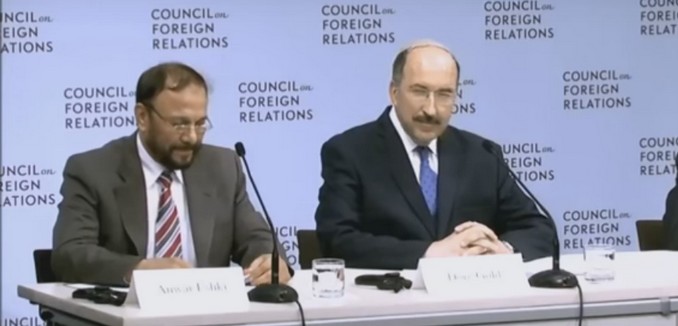Local and state-run media outlets in Saudi Arabia are beginning to shift their long-held position of enmity toward Israel, The Jerusalem Post reported on Tuesday.
Recent changes include columnists quoting Israeli officials; asking Saudis to “leave behind” their “hatred of Jews”; and calling for direct talks between Israel and Saudi Arabia, free from intermediaries. David Pollock of the Washington Institute for Near East Policy branded the pivot as “the new normal” last week, saying that while pragmatic, behind-the-scenes dialogue between Israel and Arab countries is “nothing new,” the presence of two sides in public forums marks an undeniable turning point. “What is noteworthy today,” Pollock wrote, “is that the issue is being actively and openly debated in major Arab media, with both proponents and opponents each having their say.”
A source from the office of Prime Minister Benjamin Netanyahu said that he received no indication that the change was part of an organized campaign, but noted that “some pretty big journalists” in Saudi Arabia recently spoke out against anti-Semitism.
Change in Israeli-Saudi relations has been slow but persistent. Anwar Eshki, a former general who has served in senior positions in the Saudi military and foreign ministry, visited Israel last month as part of a delegation of Saudi academics and businessmen. Israeli Foreign Ministry Director-General Dore Gold gave an interview last year with a Saudi website, and Israel’s ambassador to Washington Ron Dermer was likewise recently interviewed by the Saudi media. Gold and Eshki brought the Israeli-Saudi relationship to the forefront when they publicly shook hands last year.
In addition to improving relations with Saudi Arabia, Israel has also experienced a warming of ties with Egypt, opened a diplomatic mission in the United Arab Emirates, and reconciled with Turkey, a non-Arab Muslim nation, within the past year.
Egyptian Foreign Minister Sameh Shoukry visited Israel last month to offer his government’s assistance in restarting peace talks between Israel and the Palestinians. Shoukry’s visit marked the first time an Egyptian foreign minister had visited Israel since 2007, and highlighted the closer ties that have been forged in the last few years under the leadership of Egyptian President Abdel Fattah el-Sisi. Also last month, Israeli Prime Minister Benjamin Netanyahu and President Reuven Rivlin attended a reception at Egypt’s embassy in Tel Aviv in honor of Egypt’s National Day. The two countries have increased military and intelligence cooperation in order to combat the Islamic State’s affiliate in the Sinai Peninsula and Hamas. Egypt has been destroying underground tunnels between Sinai and the Gaza Strip in order to prevent the smuggling of weapons and fighters between the two groups, which have strong ties. ISIS in Sinai perpetrated major attacks against Egypt, and both Egyptian and Israeli intelligence agencies have noted that Hamas and ISIS cooperate extensively. Hamas has both trained ISIS militants and provided them with medical care.
In an interview with the Financial Times earlier this month, Gold explained that moderate Sunni Arab states “increasingly see the Middle East through the same prism as Israel.” About the same time, Ayoub Kara, a Druze politician from the Likud Party and Israel’s leading envoy to the Arab world, told Tablet Magazine that “our relations with our neighbors are the best they’ve ever been.” Kara said that he could even envision Israel joining a mutual defense pact with the eight members of the Gulf Cooperation Council.
[Photo: ali javid / YouTube ]




